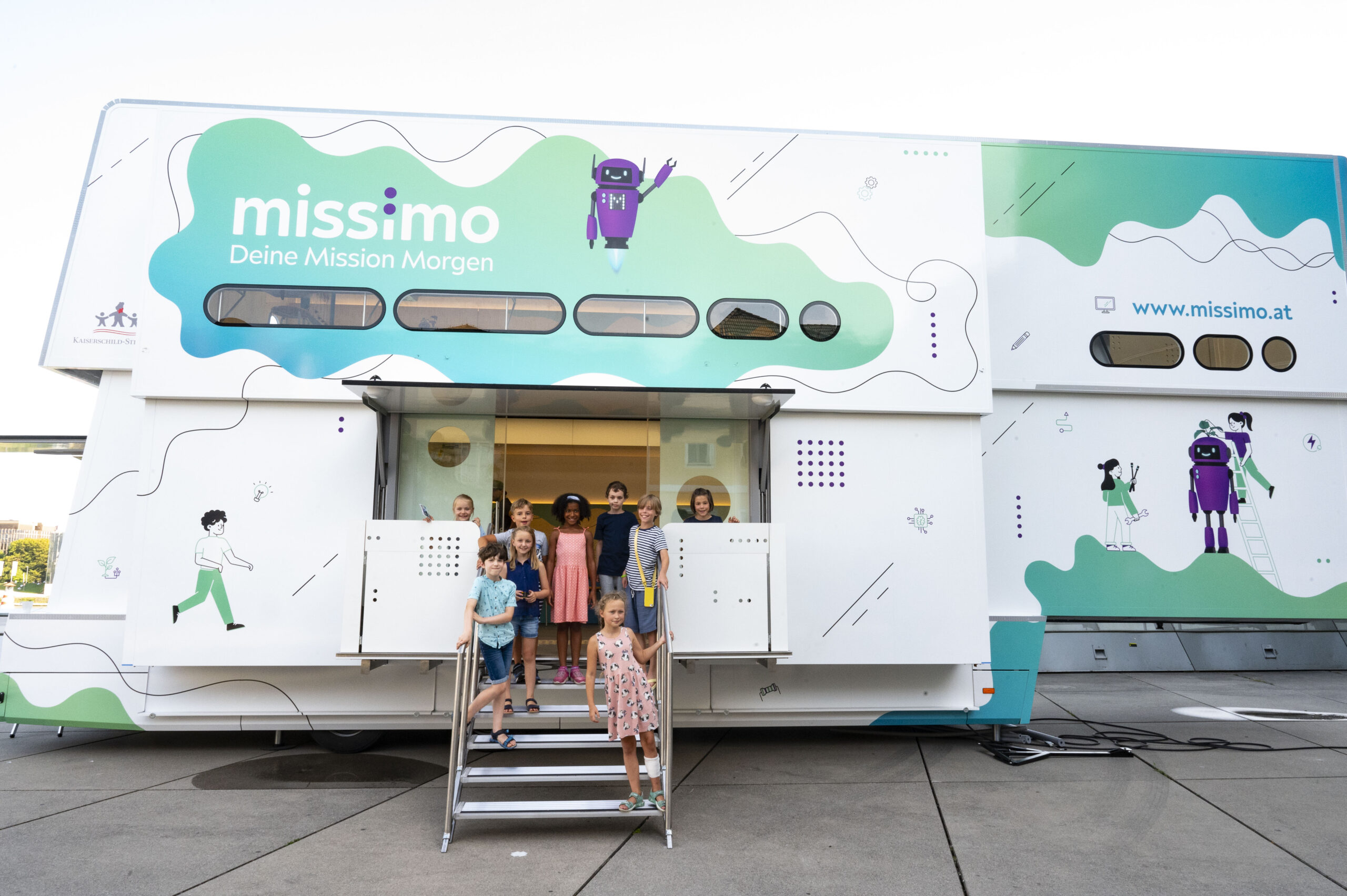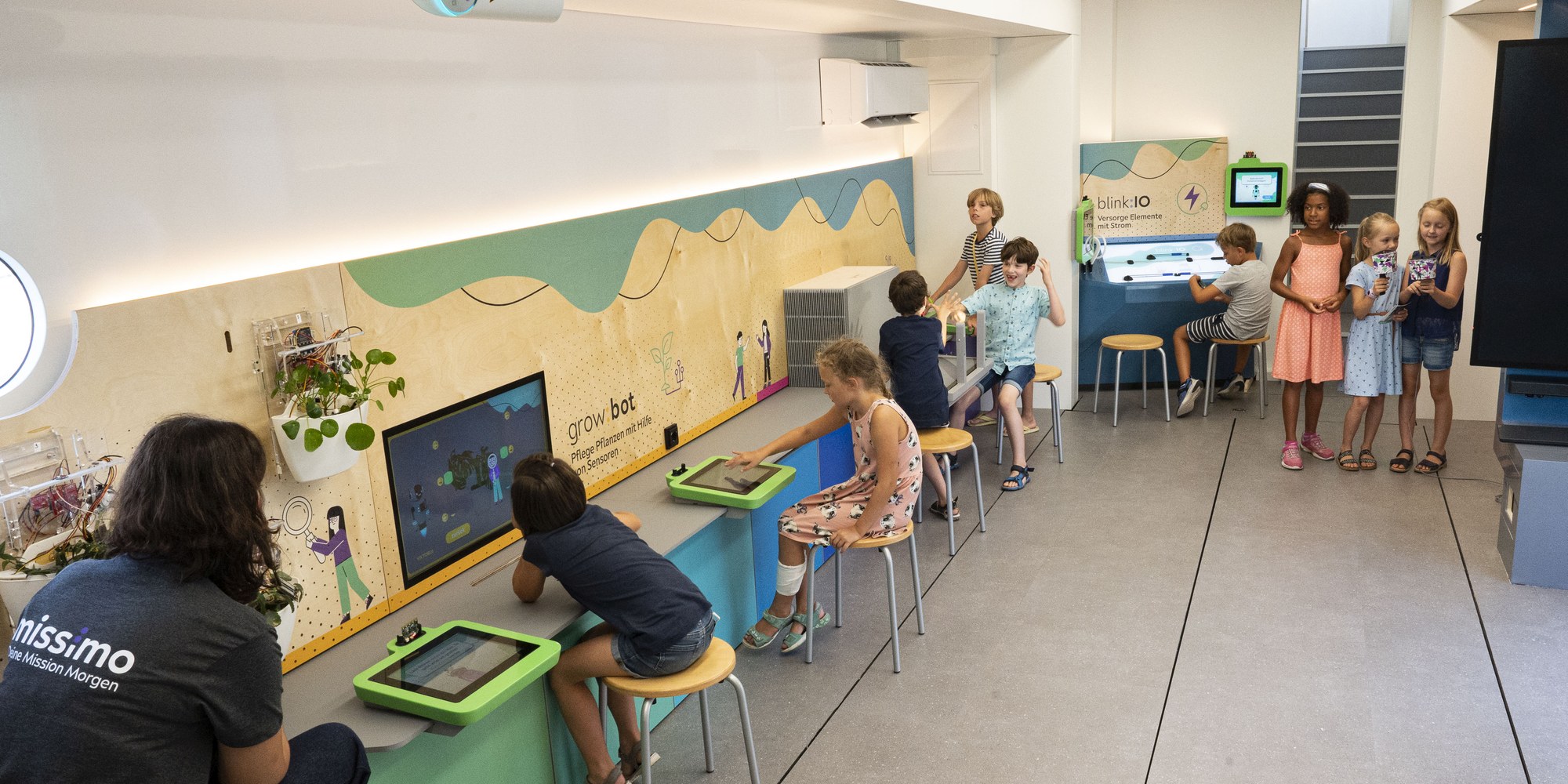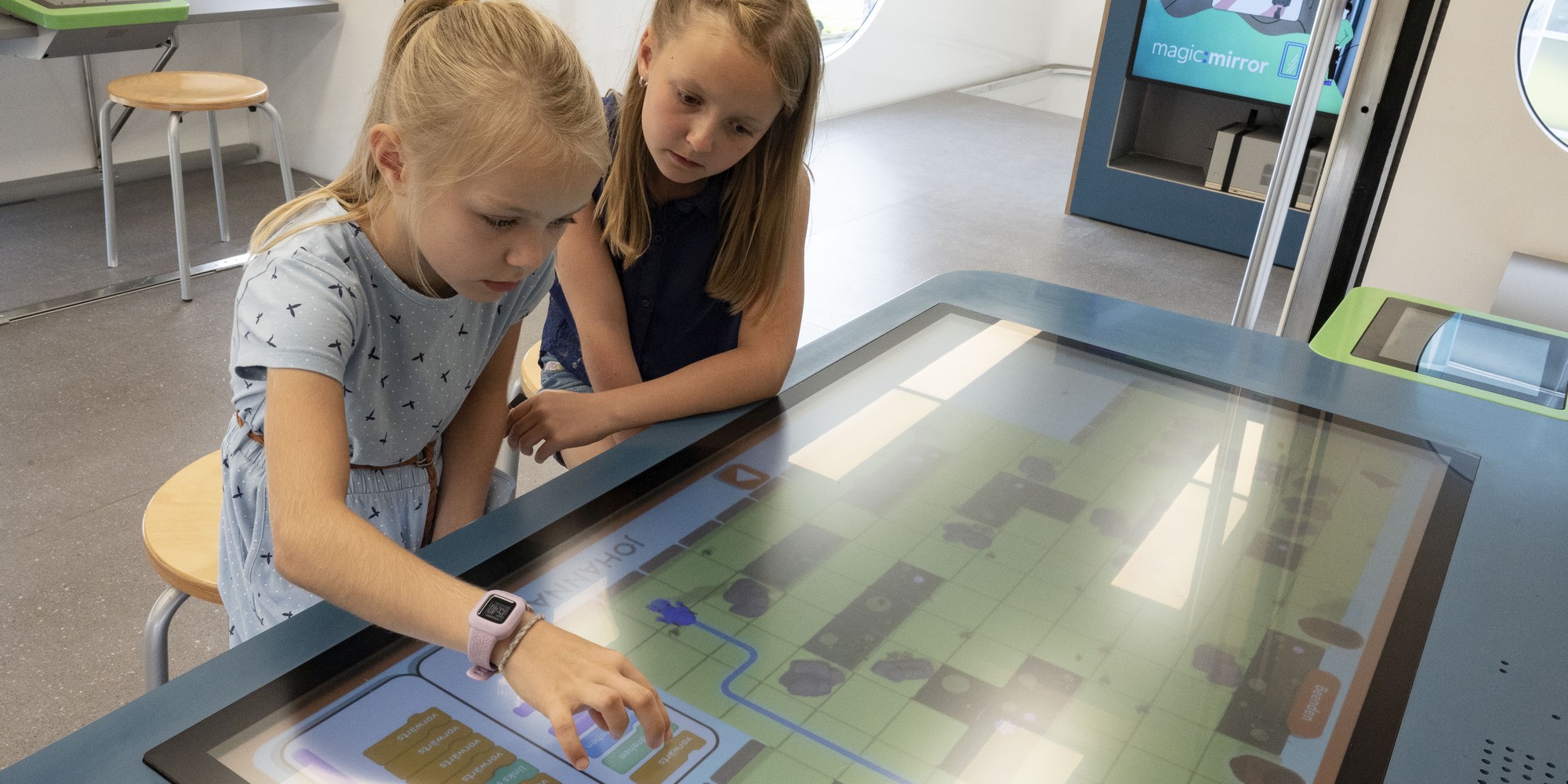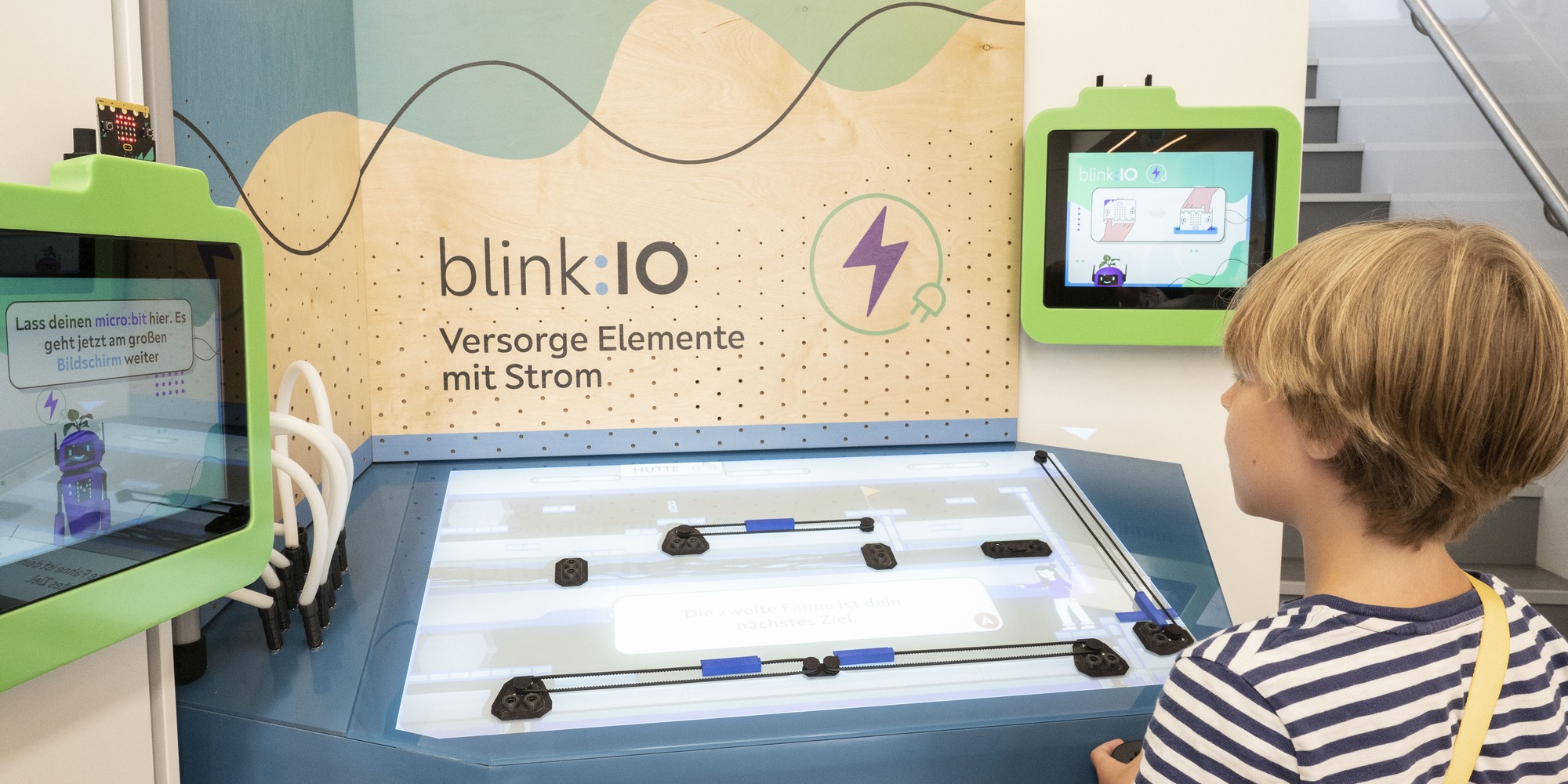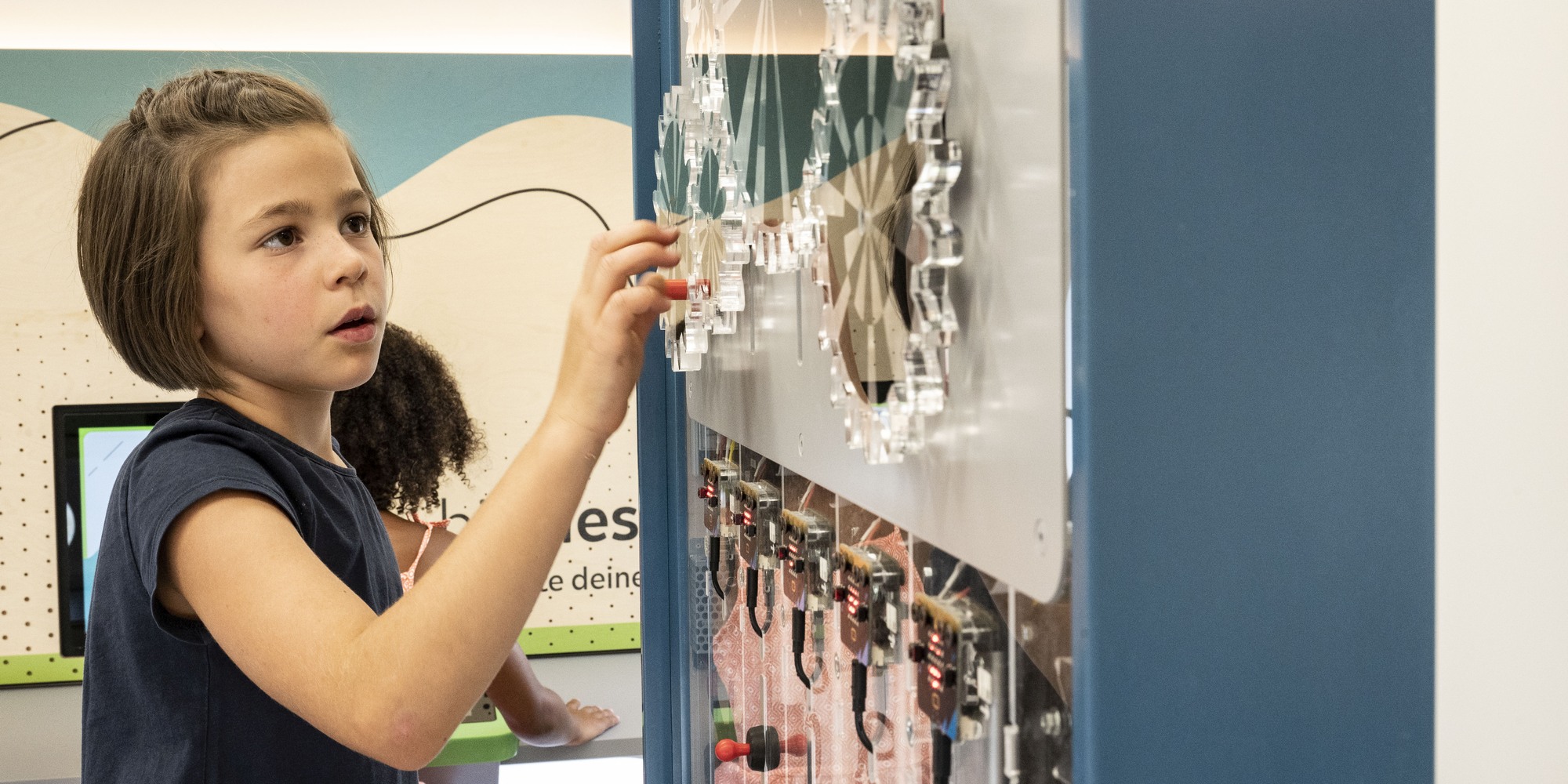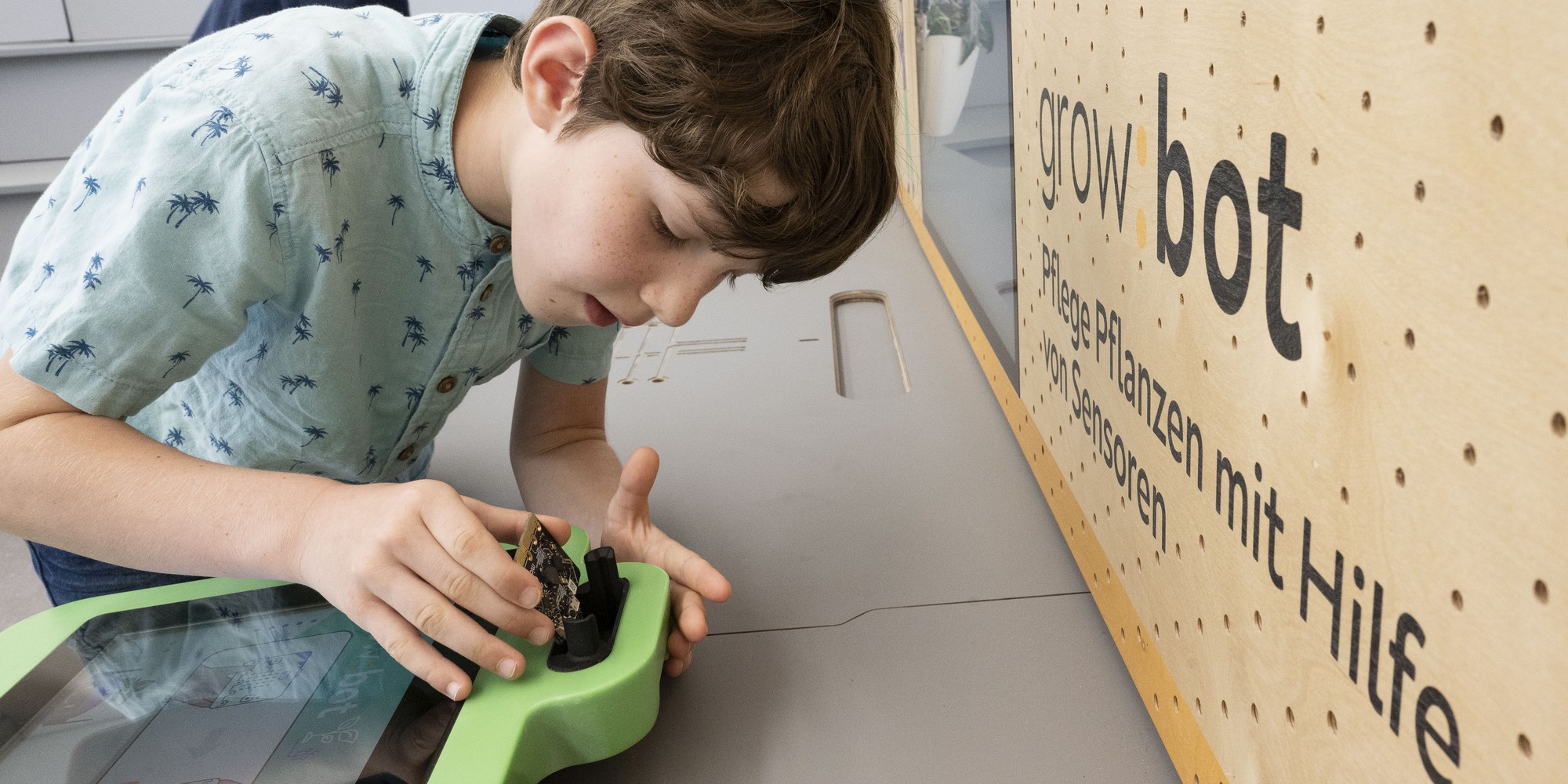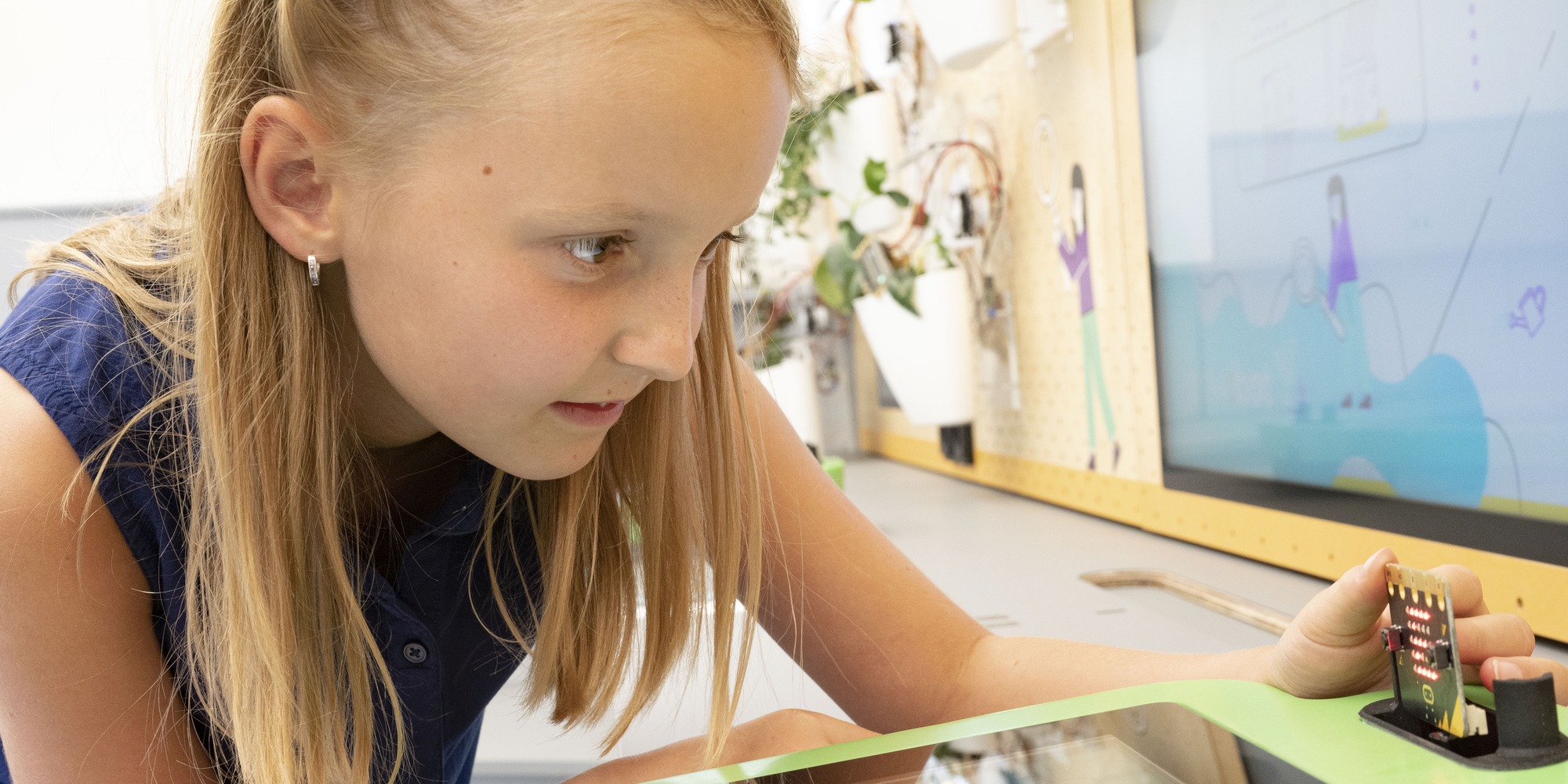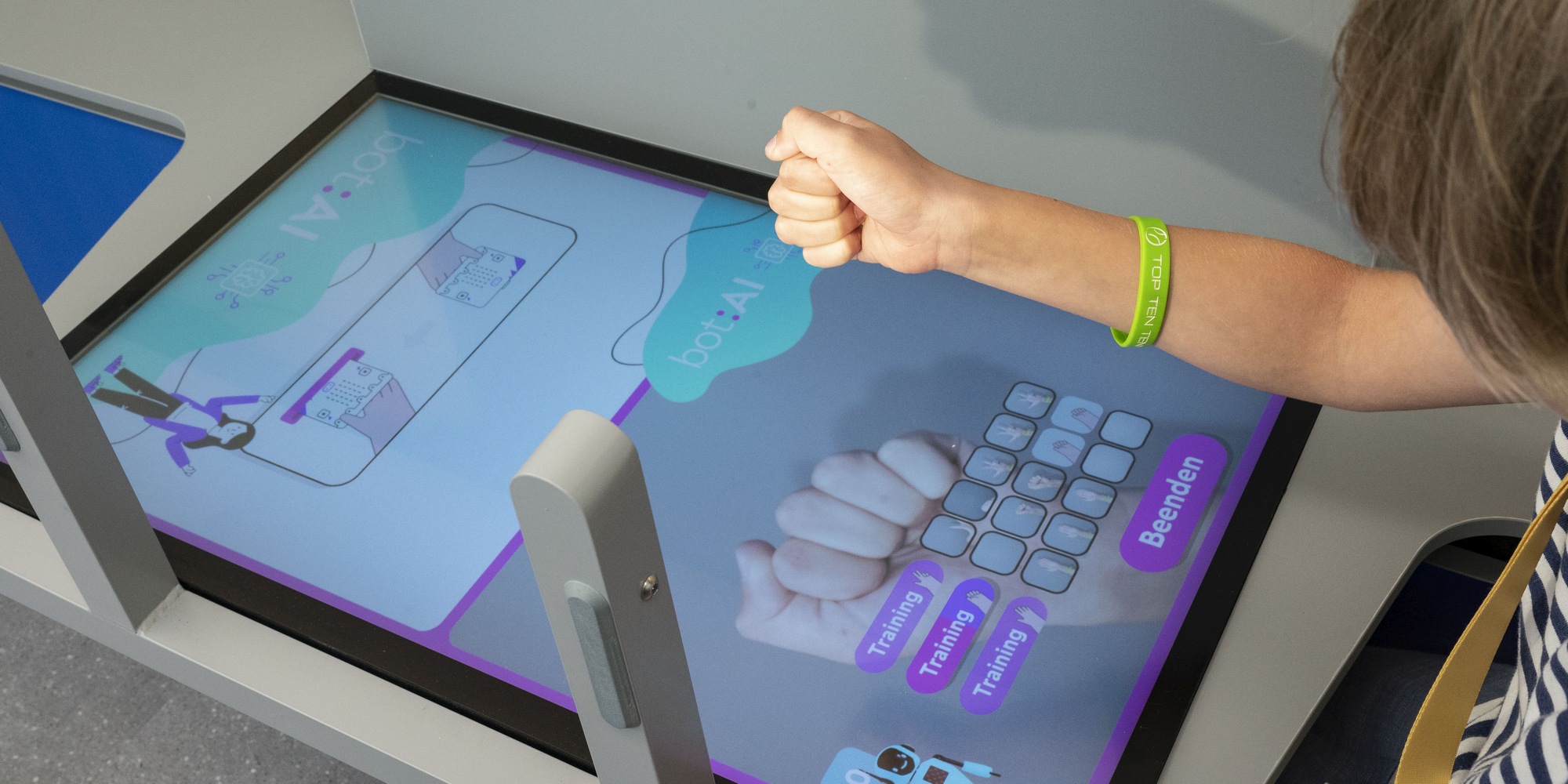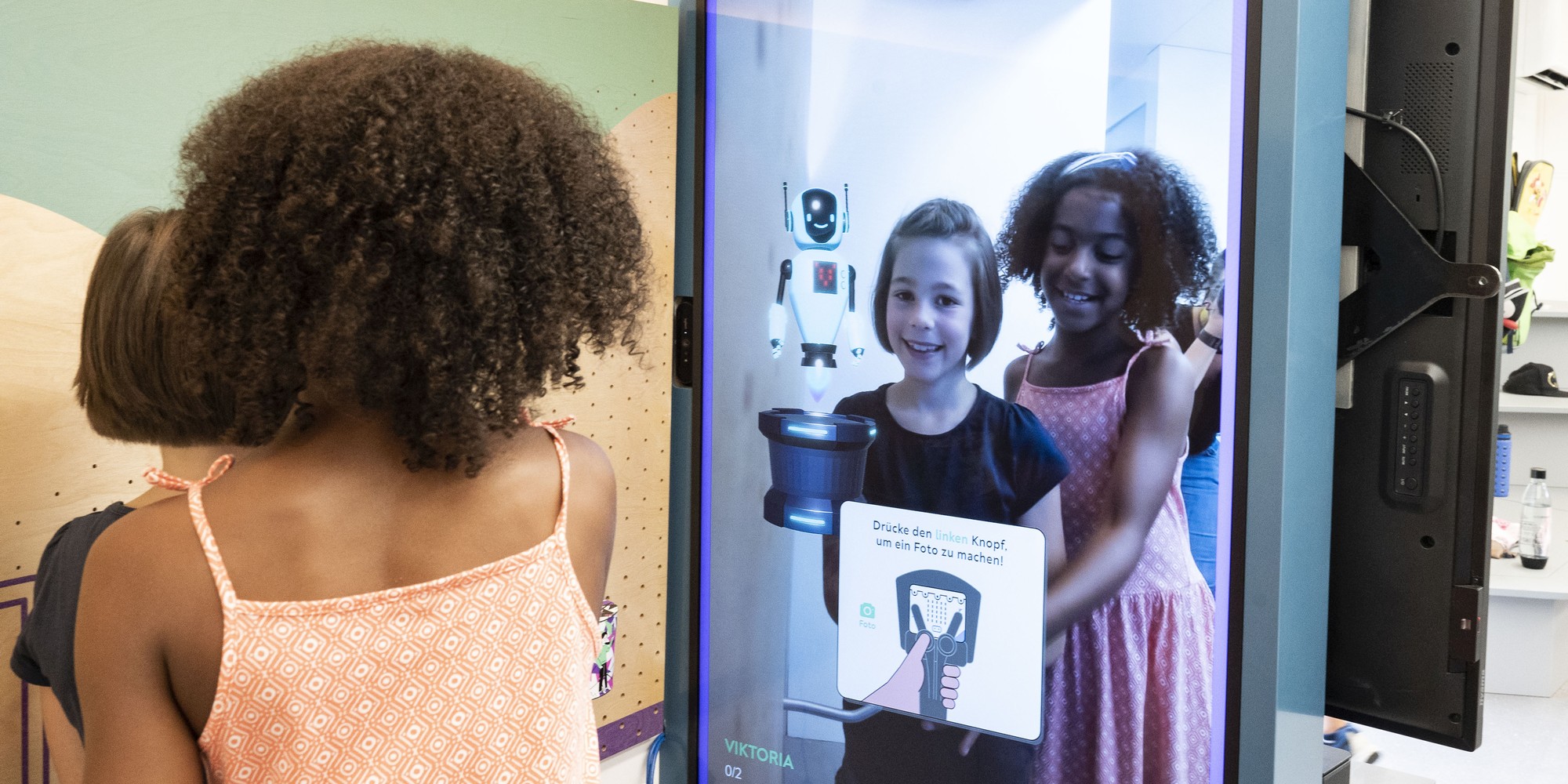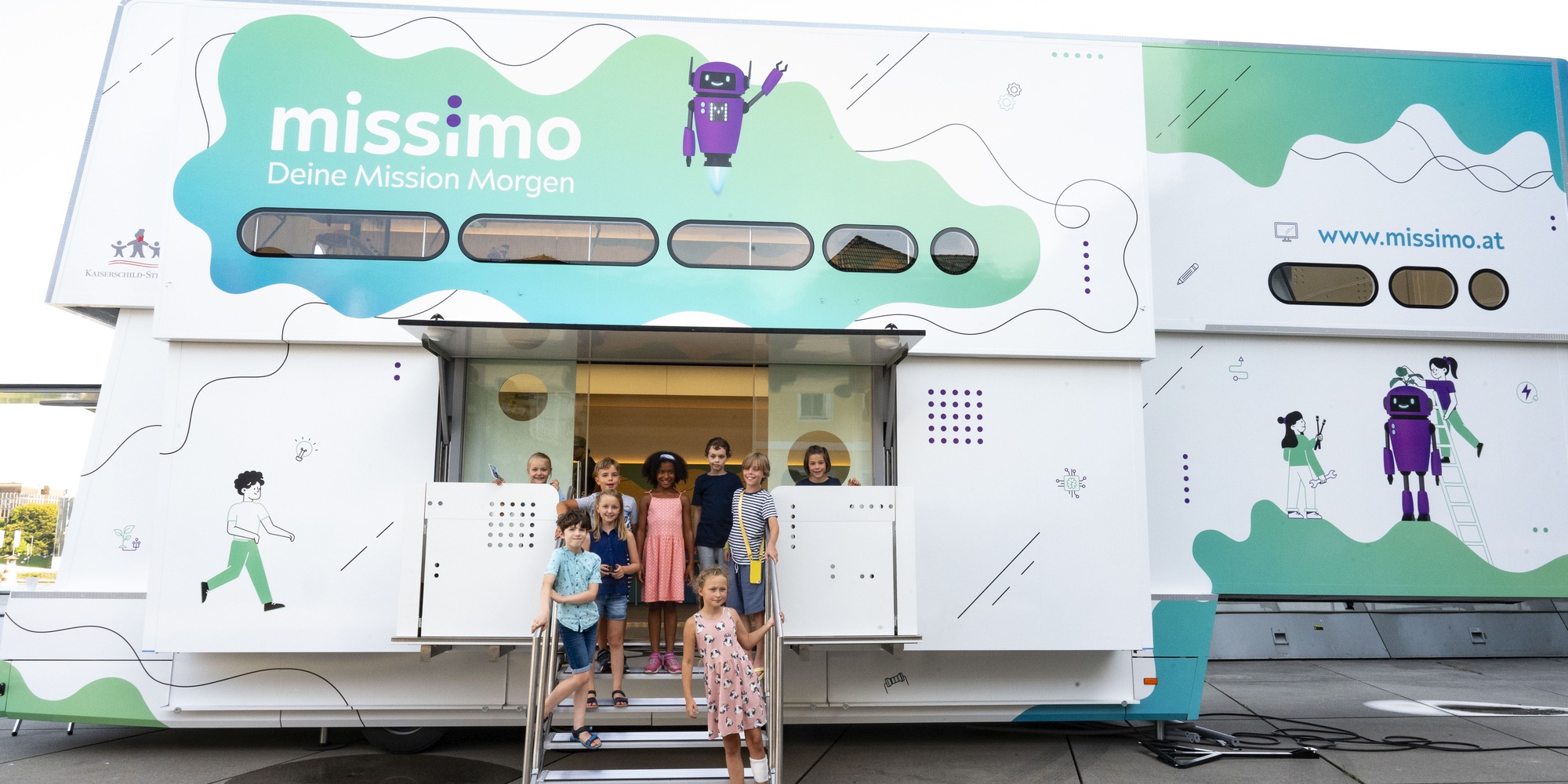missimo is a project for children aged eight to ten that offers many experiments on topics such as AI, robotics, and programming. The special appeal: missimo visits primary schools in Austria’s rural areas by truck.
In 2018, the Kaiserschild Stiftung, a charitable private foundation, approached the Ars Electronica Futurelab to support the realization of their goal: to offer primary school children in rural areas of Austria a hands-on learning experience on STE(A)M topics – science, technology, engineering, arts, and mathematics. Their idea of developing a mobile learning and dissemination concept for primary schools resulted in missimo: Deine Mission Morgen (Your mission tomorrow).
The Ars Electronica Futurelab’s tasks in the realization of missimo ranged from the development of the didactic installations and the workshop kits, from choosing the equipment as well as the technical infrastructure to the entire usability and graphic design. The missimo experience starts with a teacher training session, where educators engage with and learn how to teach the contents of the program to their students. Especially in rural areas, schools are often equipped with less IT equipment, meaning that not only children but also teachers need preparation that eases their entry into digital basic education and to provide them with the necessary tools to lower the barriers to technology.
As soon as the teachers are trained, the missimo truck can visit the primary school to introduce the children to the subjects through a playful approach. Six main installations that provide different learning experiences and narratives reside inside the truck. At the center is a microcontroller – a so-called micro:bit – with which the children are equipped at the beginning of their stay. Inside each micro:bit “lives” an avatar that can be personalized and accompanies the students from station to station.
Creative installations from AI to programming
On their journey through the main installations, the kids encounter Bit:Designer where they can customize the LEDs on their micro:bit with graphics and simple animations. Blink:I/O teaches simple circuits: To steer their robot through a virtual obstacle course, the student has to assemble different parts such as cables, motors and resistors in the real world. The Bot:Programming installation allows them to program a path through a labyrinth for their own robot and thus learn more about the procedure and logic of programming in a playful way. At Bot:AI visitors can train an artificial intelligence via webcam to compete against each other at a game of rock paper scissors. In the subsequent game they see how well their training set works and if the gestures are recognized. The Grow:Bot exhibit consists of an inspiration level on which several plants are located that feature sensors and are automatically watered, and an active station where these sensors are familiarized and used in a playful way. Finally, the visitors use the installation Magic:Mirror – an emotional experience in the truck where a camera and a screen become virtual mirrors. When a kid stands in front of it with their micro:bit and a tracking marker, they see themselves with a virtual image of their own robot. Snapshots can be captured and taken home as a print.
Finally, a workshop kit is distributed to the school classes. This kit contains components that enable experiments and trials to be carried out in class – closely linked to the information and simulation possibilities in the truck. missimo will be operated by the Kaiserschild Foundation for several years, supported by the Ars Electronica Center – to bring the fun of learning and low-threshold access to technology even closer to elementary school students all across Austria.
Credits
Ars Electronica Futurelab: Friedrich Bachinger, Patrick Berger, Alexandre Bizri, Kerstin Blätterbinder, Arno Deutschbauer, Manuel Dobusch, Samuel Eckl, Marianne Eisl, Stephan Feichter, Matthew Gardiner, Roland Haring, Horst Hörtner, Susanne Kiesenhofer, Christopher Lindinger, Stefan Mittlböck-Jungwirth-Fohringer, Otto Naderer, Nicolas Naveau, Ali Nikrang, Hideaki Ogawa, Maria Pfeifer, Johannes Pöll, Daniel Rammer, Erwin Reitböck, Simon Schmid, Georgios Tsampounaris, Julian Zauner
Ars Electronica Center: Sonja Bailer, Nicole Grüneis, Christoph Kremer
INSEQ Design: Jakob Illera
